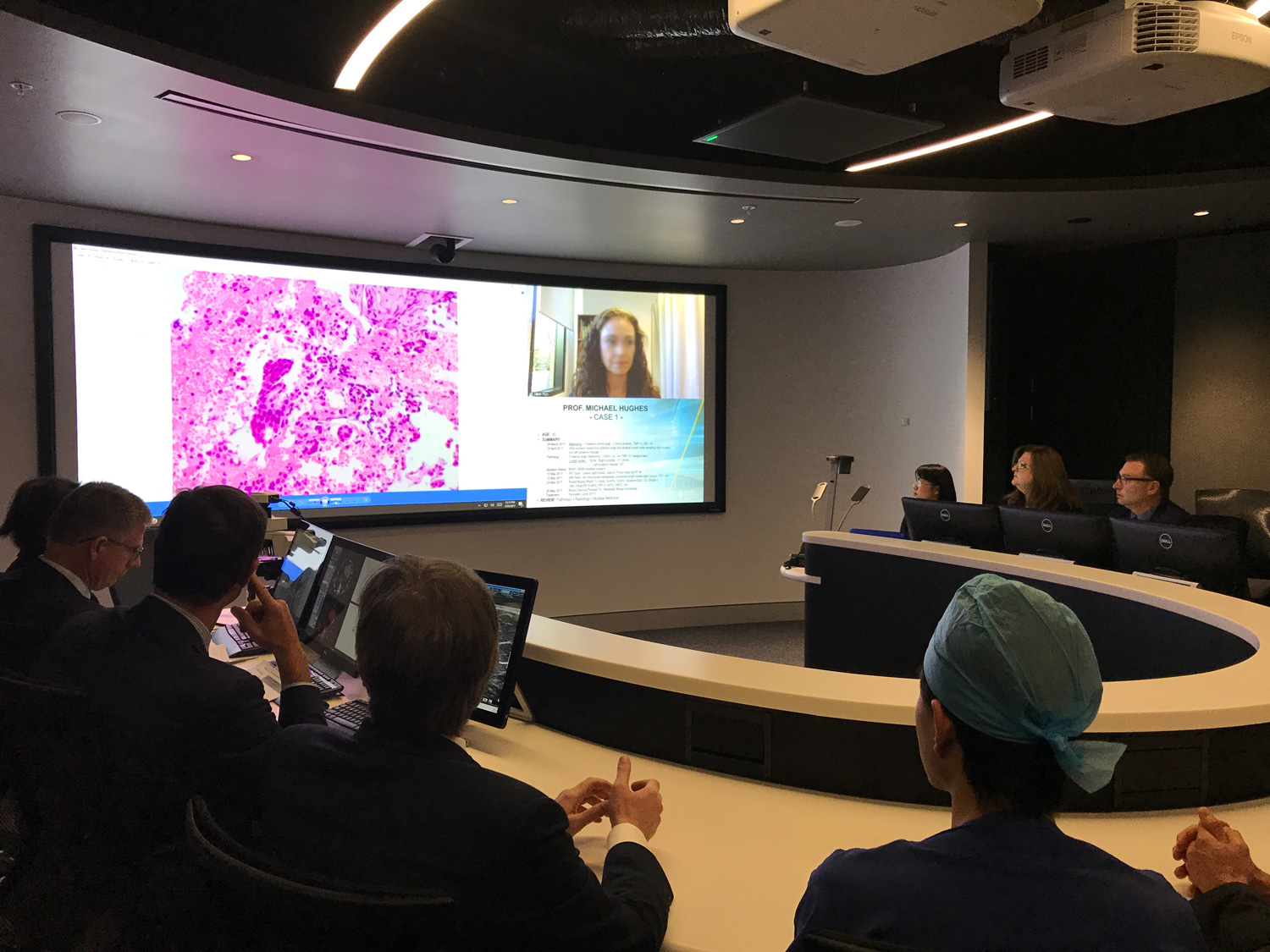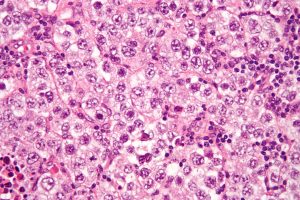
Sydney, NSW, (June 19, 2019) – The Sydney Adventist Hospital (also known as ‘The San’), is working with technology partner Innovative Clinical Information Management Systems (iCIMS), to fully automate its Cancer Services Multi-disciplinary Team Meetings (MDTs). The new Integrated Cancer Information Management System (ICIMS), built on iCIMS’ LATTICE platform, will enable the San’s Integrated Cancer Centre to reach its full potential by streamlining and automating data preparation, data collection and workflows for each of its 10 tumour stream MDTs. This project comes as the San continues to advance its Cancer ‘Centre of Excellence’, including its state of the art Multi-Disciplinary meeting room, towards becoming the leading cancer service in Australia.
ICIMS creates a closed-loop cancer MDT management system which will increase patient safety and service while significantly reducing the work load on clinicians. The implementation includes a minimum of 8 integration points with the San’s electronic clinical systems, including the SanCare EMR for clinical details, the San’s PAS for patient demographics, Operating Theatres for surgical data, Pathology for targeted cancer data, Day Infusion Centre system for systemic therapy data, and the Radiation-Oncology database for radiotherapy data. ICIMS enables automatic delivery of all critical patient data to present the full patient story in a single patient-centric view at the MDT meeting. Preparation time and effort by clinical and ancillary staff is significantly reduced, data collection is comprehensive, and decision-making is thus better informed.
“This is an important and exciting collaboration between the San and iCIMS” said Associate Professor Gavin Marx, Clinical Director of the San Integrated Cancer Centre. “The accelerating pace of improving care and treatment of our patients at the San is founded on complex multidisciplinary collaboration – through efficient access to all the critical information we need for care planning and driving ongoing research. Our ICIMS is the bedrock for reliable collection, analysis and presentation of big data information for our multidisciplinary teams”, he added.
The system will drive a universal streamlined referral process across tumour streams so that MDT clinicians can electronically refer and register patients to MDT meetings from anywhere, including remotely. A further efficiency and productivity boost is that pathologists, radiologists, nuclear medicine specialists, and other diagnostic specialists can easily access the system at any time leading up to an MDT meeting to prepare their cases pro-actively and at their own convenience.
During an MDT meeting, ICIMS generates clinical summaries auto-populated with all available clinical information required for case discussion. Treatment recommendations are recorded in real-time on the system for follow-up and actioning. Finally, The MDT summaries from each meeting are immediately sent electronically into the hospital’s EMR enabling easy access for clinicians, distribution to others involved in the patient’s care, monitoring of the patient journey and timely follow up, so closing the information and action-taking loops.
The project, was developed in consultation with the MDT clinicians, with user-group workshops and agile design, and the breast and lung tumour streams are set to go-live this month.
Chris Williams, San CIO, said “It is fantastic to be working with innovative Australian companies iCIMS and HLA. They have both the local and international experience in oncology and MDT systems together with expertise in clinical Natural Language Processing environments. The ICIMS application, supported by CliniSearch’s NLP extraction pipeline, interfaces to just about all of the Hospital’s key systems, including our EMR. This provides us with a strong platform to underpin quality care and treatment at the San for now and into the future”.
Pathology Feed
The San has also taken a world-leading initiative to provide the Pathology feed into ICIMS via Health Language Analytics’ award-winning HORIZON CliniSearch platform. HORIZON’s Clinical Natural Language Processing (NLP) extracts targeted cancer content in prose pathology reports and sends it to ICIMS to populate the structured pathology data items of an MDT case. CliniSearch has been implemented at the San for some years and currently contains over two million fully indexed and coded clinical reports in its data store, which now will be connected to ICIMS. Professor Jon Patrick, leading the NLP branch of the project, said that this is a ground-breaking advance in bringing an industrial-grade NLP pipeline to the front and centre of clinical workflow.
As well as managing patients in an MDT environment, the system facilitates research, auditing, and automated reporting to such organisations as Hospital Operations for analytics, the Royal Australasian College of Surgeons for data collection, Cancer Institutes for MDT statistics, and the NSW Cancer Registry for case recording and clinical details.
“We are excited to be working on such a large-scale leading-edge project with an organisation as ambitious and innovative as the San. Our platform gave the San the ability to install a solution that is tailored to their vision, achieving the goals of their clinicians, administrators, and IT custodians”, said iCIMS Managing Director, Ali Besiso. “The ability to provide tailored modules for each of the 10 tumour streams, all within a single solution architecture achieves the best of both worlds of enterprise and best-of-breed solutions” he added.
Sydney Adventist Hospital known affectionately as the San since it started in 1903 as a Sanitarium is NSW’s largest private hospital, a not-for-profit healthcare organisation of the South Pacific Division of the Seventh-day Adventist Church. It has over 700 beds including 524 overnight beds with over 2,400 staff, 500 volunteers and 1,100 accredited medical practitioners caring for more than 63,000 inpatients and 120,000 outpatients annually – delivering 1,800 babies and treating 18,000 presentations to Emergency Care.
It is a teaching hospital of the University of Sydney and a partner in nursing education with Avondale College of Higher Education. It provides comprehensive acute surgical, medical and obstetric care including a large range of diagnostic, allied health, and support services, was the first private hospital in NSW to offer Radiotherapy services in 1977, and the first hospital in Australia to offer a private, fully integrated cardiac surgery and catheterisation program in 1979.





